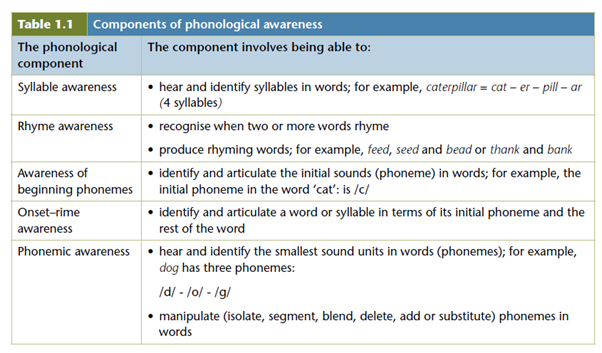Phonological Knowledge
The following extract is taken from the PETAA book, A Closer Look at Spelling in the Primary Classroom written by Grace Oakley and Janet Fellowes.
Phonological knowledge, or knowledge about the sounds in language, is an important foundation of spelling.
To learn to spell, children need to become phonologically aware; that is, the ability to hear, identify and manipulate syllables, rhymes, and individual sounds (phonemes) in spoken words. In order to spell words using their phonological knowledge, children must be able to segment each word into smaller units (syllables, phonemes or onset and rime) and match these units to appropriate letters or letter combinations (graphemes).
Important to children’s phonological knowledge development is the understanding that sentences comprise words, as well as the ability to hear and identify the separate words in sentences. This occurs for most children at about the age of four (Fox, 2011). With this established, the different components of phonological knowledge are often learnt in a relatively predictable sequence (Anthony & Francis, 2005; Fox, 2008), beginning with syllable and rhyme awareness at about the age of four or five, followed by awareness of the initial phonemes in words, the ability with onset–rime and finally phonemic awareness. Table 1.1 provides an outline of each of these components of phonological awareness.
